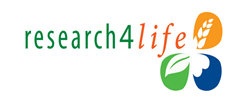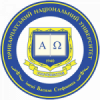Formation of Competences of Future Educators for Requirements Education for Sustainable Development
DOI:
https://doi.org/10.15330/jpnu.7.1.7-14Keywords:
competence,, pedagogical education, education for sustainable development, professional trainingAbstract
With the help of analysis the recommendations of major international conferences, treaties and conventions over the last two decades of reforming the education system for sustainable development have substantiated that the range of scholars interested in addressing the issues of progress towards sustainability has expanded from economists to scientists and economists. Businessmen, educators and representatives of governments, politicians, managers who are trying to bring sustainable development ideas into practice with all stakeholders. Attention is directed to finding new solutions to the problems of sustainability of the biosphere and society. The main solution to the problems is the formation of national educational systems for sustainable development, which should include environmental, social and economic, organizational and managerial aspects of shaping the quality of training of specialists and the quality of life of humankind, using formal, non-formal inclusive democratically oriented models of education and science. In all areas with public awareness, broad access to education and a reorientation of the entire education system to take into account sustainable issues of development. Education for sustainable development should be at the forefront of the concepts and strategies for moving towards sustainability, which provided for the development of a National action plan for the implementation of the United Nations Strategy for education for sustainable development. It is established that activities to disseminate his ideas will help to improve the quality of education and to implement the principles of “Education for All”. Sustainable development issues should be included more actively in higher education institutions (HEI) curricula and science, at all levels to promote the formation of a national education system for sustainable development, and to formulate five- and ten-year framework programs and National action plans for the implementation of the UN Strategy. Transformation of HEI curricula and curriculum, primarily those providing pedagogical education, to form sustainable development competencies for future and contemporary teachers (academics) should be a priority of the National Action Plan for the implementation of the Strategy. We describe the basic requirements for the preparation of a modern teacher who would possess communication managerial, qualitative competencies.










